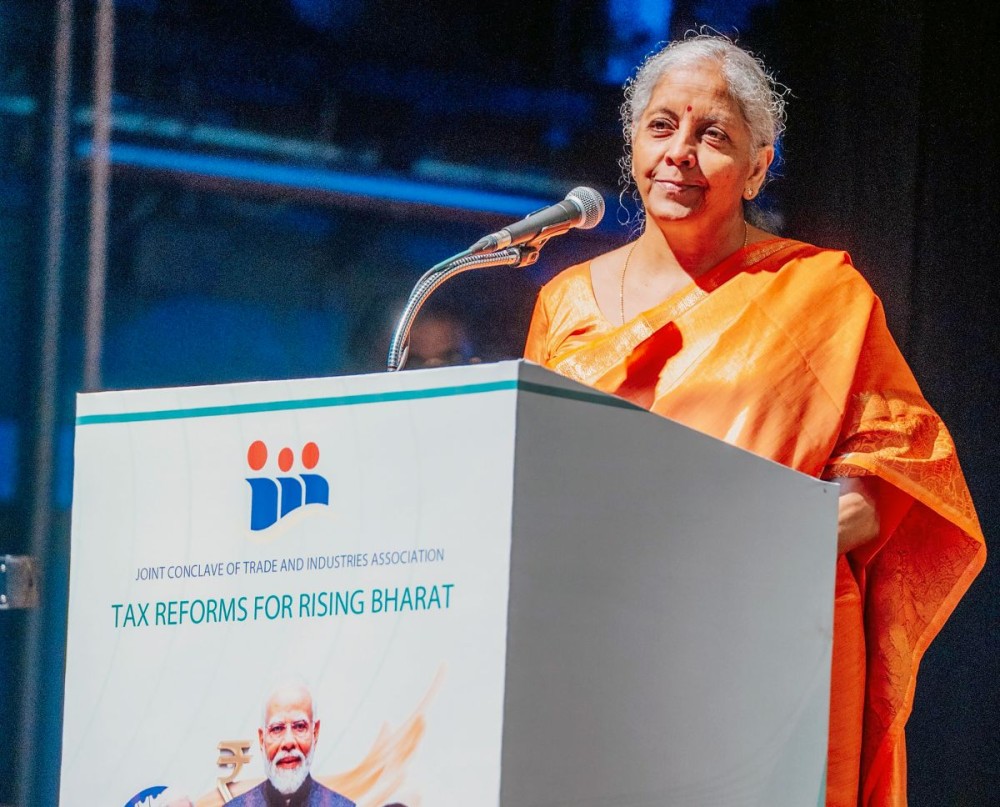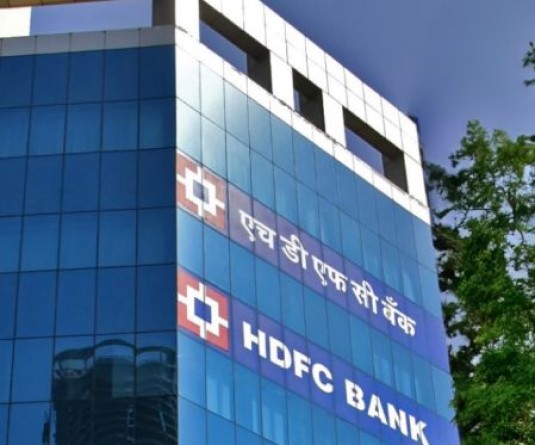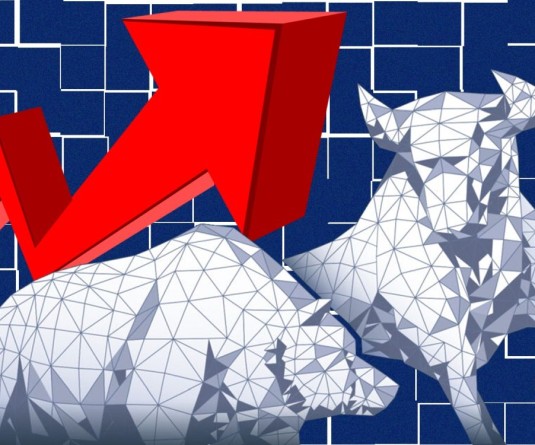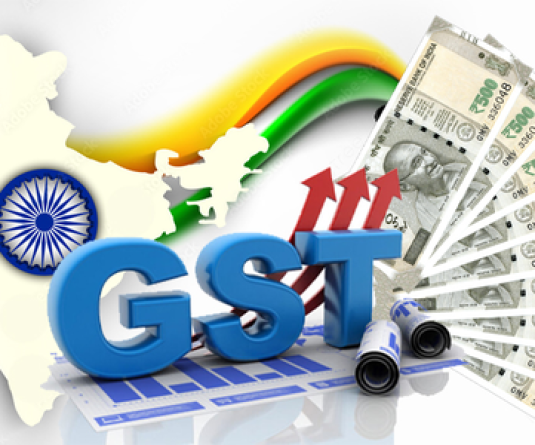Chennai: Union Finance Minister Nirmala Sitharaman addresses Nainar Nagenthran during an interactive session on ‘Tax Reforms for Rising Bharat’ at the Music Academy in Royapettah, Chennai, on Sunday, September 14, 2025. (Photo: IANS)

New Delhi, September 14 (IANS) The Goods and Services Tax (GST) is now making its presence felt in every corner of daily life, Union Finance Minister Nirmala Sitharaman said on Sunday.
Speaking at an event in Chennai, she highlighted how the impact of recent GST reforms can be seen “from the moment people wake up to when they go to bed,” benefiting citizens in everything from their morning tea to their dinner.
FM Sitharaman explained that before the introduction of GST, only about 66 lakh businesses were part of the tax system.
“In the last eight years, this number has risen to 1.5 crore, a growth she attributed to the government’s transparent and simplified tax policies,” the Finance Minister added.
The finance minister further said that over the past eight months, the government has worked to make tax classifications simpler and clearer so that businesses face no confusion.
She emphasised that the reforms would lower the input costs of many products, which would reduce overall production expenses and eventually ease prices for consumers.
Highlighting one of the major changes, FM Sitharaman said that 99 per cent of the goods that earlier came under the 12 per cent GST slab have now been brought under the 5 per cent bracket.
FM Sitharaman stressed that this move will make everyday items more affordable, giving direct relief to common people.
“The ease of the system has not only encouraged distributors but also manufacturers to join in,” FM Sitharaman stated.
The gross GST collection has increased to Rs 22.08 lakh crore from Rs 7.18 lakh crore in 2018, benefiting both the people and state governments, the Finance Minister added.
“Some may have criticised me, saying I only know how to put people in trouble, but we're working for the nation. State ministers have been part of the GST Council since its inception, and this decision was made collectively,” FM Sitharaman added.
GST reforms have reduced tax burden on people: Nirmala Sitharaman
Union Finance Minister Nirmala Sitharaman on Sunday said that the Goods and Services Tax (GST) reforms have reduced the tax burden on people.
Addressing the Joint Conclave of Trade and Industries Association - 'Tax Reforms for Rising Bharat' in Chennai, she explained that the four-tier GST structure has now been simplified to just two slabs.
"Earlier, GST had four categories. Now, we have simplified it into two slabs - 5 per cent and 18 per cent. Items that were taxed at 12 per cent and 18 per cent have largely been moved to the lower 5 per cent bracket. For certain essentials, tax has been reduced to zero. This reform will significantly benefit all 1.4 billion Indians," FM Sitharaman said.
The changes, the biggest overhaul since GST was introduced in 2017, will see the current 5 per cent, 12 per cent, 18 per cent and 28 per cent structure replaced with just two rates - 5 per cent and 18 per cent.
Additionally, a special 40 per cent tax bracket has been introduced for goods considered harmful or excessively luxurious, including cigarettes, tobacco, pan masala, soft drinks and high-end luxury cars.
Prime Minister Narendra Modi had hinted at the shift during his Independence Day address from the Red Fort, underlining the government's intent to ease the common man's burden before the festive season.
The revised rates will come into effect on September 22, just ahead of Diwali.
Government officials pointed out that the timing of the announcement was deliberate, keeping in mind the major festivals across regions.
While Diwali drives consumer demand for clothing and household goods in the south, Navratri and Durga Puja boost purchases in the north. The GST Council, with representatives from all states and Union Territories, unanimously approved the reform.
The Centre expects the simplified structure to immediately bring down prices of essential goods, spur consumption and boost economic activity.
Calling it a collective achievement, she said, “This is not just a tax cut - it is a victory for every citizen.”






